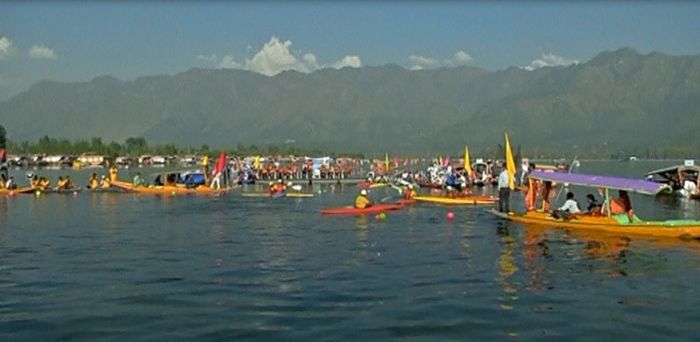Recently, someone asked me, “Why are women in general better at studies than men? Why do women seem to excel in every field?” My simple and straightforward answer was: because time and again, women have to prove that they are better than men.
Every little girl who, with great difficulty, gets the slightest opportunity to study, feels an invisible pressure, a need to prove that the money spent on her is not being wasted. She studies hard not just to pass exams, but to prove a point, that her education means something beyond a marriage proposal. She wants to show that she can stand on her own feet, that she can support her parents, that she is worth the effort.
There is a certain guilt that comes with being an educated woman, the guilt that her parents are working hard to pay her fees, the guilt that this money could have been used somewhere else, or even the guilt of being born a woman who, despite her education, may not be able to fully support her parents because once she is married, whether she likes it or not, her earnings often become her husband’s money.
Men, on the other hand, have it slightly easier. They grow up with the assurance that success is their birthright. They don’t have to prove their worth, they just have to study, get a job, and support their parents. Society offers them every kind of support, nobody calls them ten times a day to do the dishes, cook dinner, do laundry, or clean the house while they’re trying to study.
In fact, even when they are free, no one asks them to help. They can scroll through their phones for hours without being interrupted. For women, the already difficult path of education becomes even harder in conservative societies like Kashmir. Here, many still believe that educating women beyond a certain level is unnecessary, even dangerous, because “they will learn more than they should.” A girl’s education is often seen merely as a tool to secure a good groom and maintain social etiquette. No matter how prestigious your degree, no matter what international awards you win, the only qualities that will truly define your worth in the eyes of many are how well you can cook, clean, and raise children.
I wanted to begin with this background, not to complain, but to explain what it means to be born a woman. However, what I truly want to talk about today goes beyond gender, religion, or culture. I want to talk about humanity. In the religion of humanity, a person is a person, not a man or a woman, but a being with feelings, emotions, and a desire to be loved and respected. We all crave affection, appreciation, and kindness from those we look up to, especially from our parents and teachers. In this moral world, a teacher is like a second father, someone we deeply admire and respect.
Now imagine this: you’ve never met your father in person, only seen him through calls and videos. When you finally meet him after years, what’s the first instinct? You hug him, maybe cry out of joy. Nobody would ever sexualize that moment, because it’s pure, innocent, and human nature. But in Kashmir, a young girl met her teacher, a man she respected like a father, at an event. Overwhelmed with emotion, she hugged him and wept. That single innocent gesture turned into a storm. Within hours, the entire valley had seen the video. People, or rather, the so-called “influencers”, made clips, shared them online, and turned her life into a spectacle. The comments were filled with rage, mockery, and abuse. She was shamed to the point of attempting suicide, forced to apologize publicly alongside her parents, just to calm the cruelty of a society that refused to see her innocence.
I don’t know the girl, but I can already imagine her life from now on, a life that may never be the same again. She was a bright student, maybe even a future doctor. Her parents must have spent a fortune on her education, ignoring what others said about “wasting money on a daughter.” And now, it’s all shattered, her dreams, her confidence, and her family’s hopes , all destroyed because a few people needed a few likes on Instagram. Maybe she was wrong in her actions, maybe she made a mistake. But what gives us the right to destroy her life for it? What gives us the right to judge, insult, and harass her as if we are perfect ourselves?
Where are these influencers and self-proclaimed protectors of morality when girls are harassed on public transport every day? Where are they when drugs destroy our youth, when roads are broken, when people have no drinking water, when corruption eats away our future? They sit comfortably in their homes, blaming the government and everyone else, except themselves.
The truth is, men in Kashmir owe this girl an apology, for ruining yet another life in the name of “honor” and “religion.” Because what we witnessed wasn’t protection of values; it was collective bullying disguised as righteousness. Why are so many Kashmiri men so afraid of educated, confident women? Why does every step forward for women feel like a threat to their pride?
After this incident, I saw comments demanding that girls should be banned from studying or that parents should stop sending daughters outside for education. But where is this rage when men make similar mistakes, or worse?
A while ago, another girl who topped her 12th exams appeared in an interview without wearing a hijab. The entire valley trolled her so viciously that she too had to apologize publicly. Religion is personal; faith is a journey one undertakes at their own pace. We could have guided her with love, because Islam, and every true faith, teaches compassion, patience, and understanding.
What makes us think we are the guardians of religion when, in private, we commit sins that no one sees? What gives us the right to humiliate someone publicly when our own hearts are so impure? It’s time we stop and reflect, how far have we really come as a society, and how far behind do we still remain? Our worth lies not in how loudly we judge others, but in how gently we choose to understand them.
To that girl, the one who made a simple, human mistake and was punished as if she had committed a crime, I want to say I am sorry. I am sorry that our society failed you! That we forgot to be kind, that we as women could not protect you, that we turned your innocence into a scandal. You deserved guidance, not humiliation. You deserved empathy, not hatred. But I also want to say that not everyone was cruel.
Amidst the noise of mockery and moral policing, many voices rose in your defense. People, men and women alike, spoke out for you, wrote for you, prayed for you. They saw your tears not as shame, but as proof of your humanity. And that gives me hope. It shows that kindness is not completely lost, that there are still people who believe in compassion over condemnation.
I hope one day you forgive us all, not because we deserve it, but because your heart is far greater than the narrow minds that tried to break you. And I hope as a society, we learn to pause before judging, to love before mocking, and to think before destroying another life. Because no religion, no culture, and no tradition is above humanity.
(The writer is a Masters student at Jamia Millia Islamia, New Delhi)



